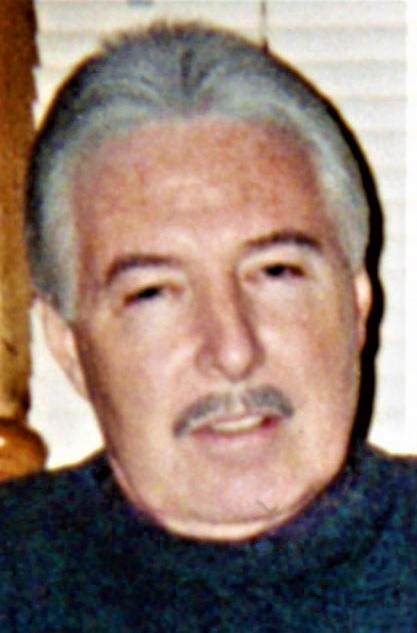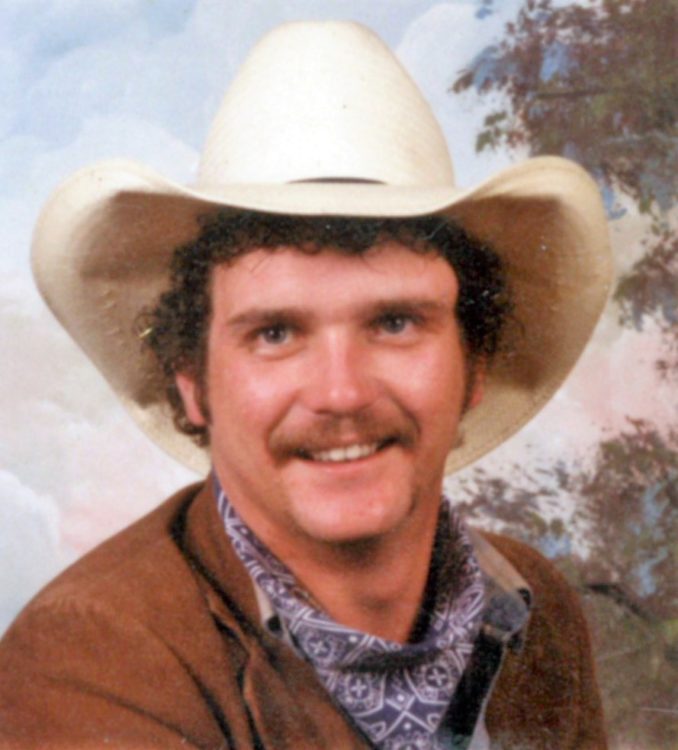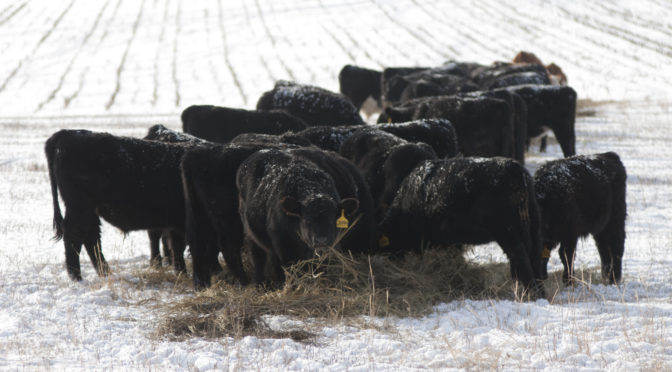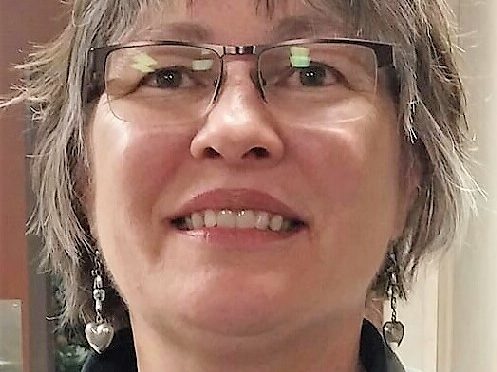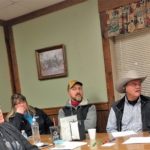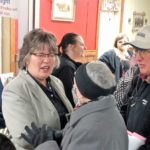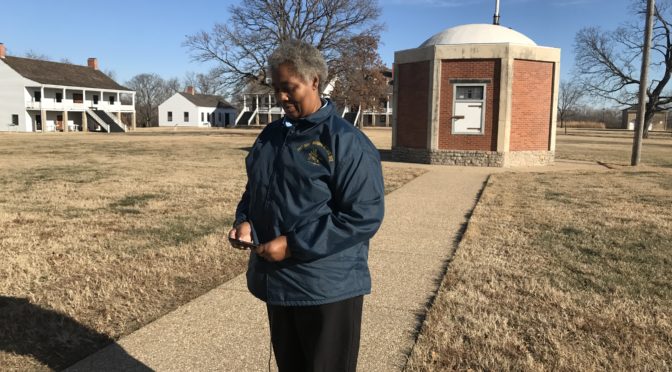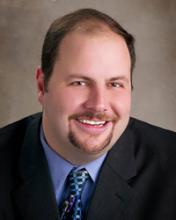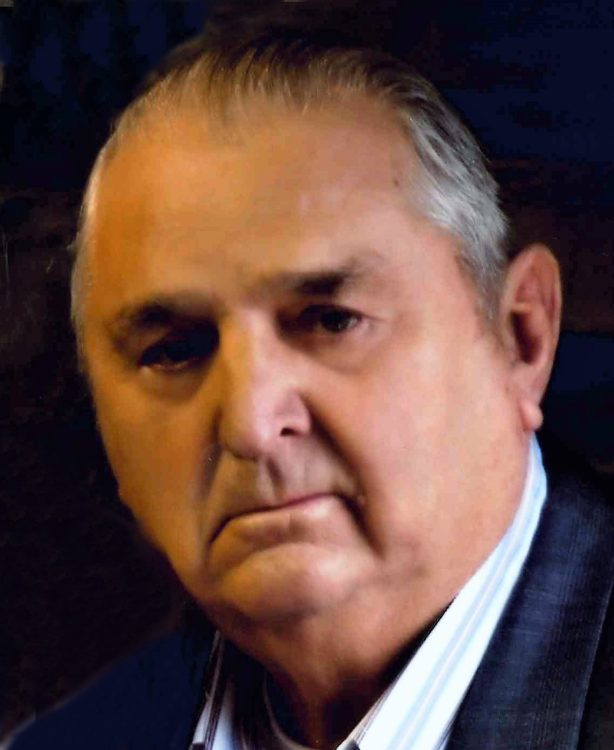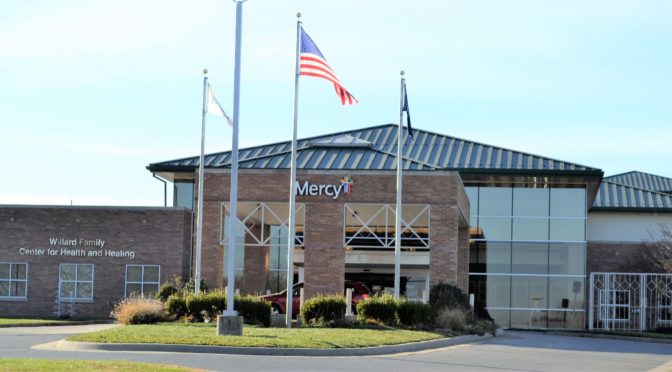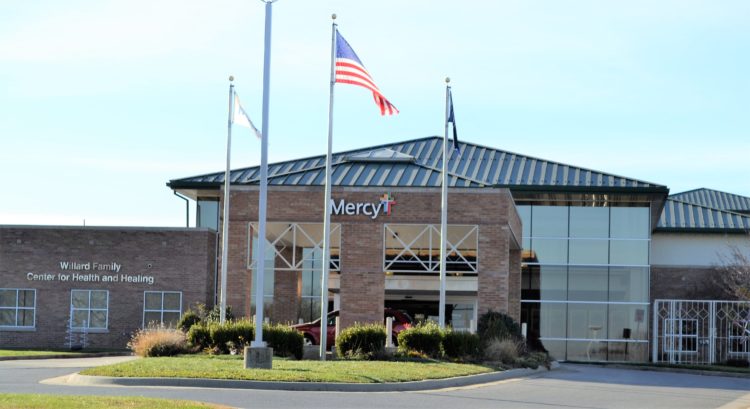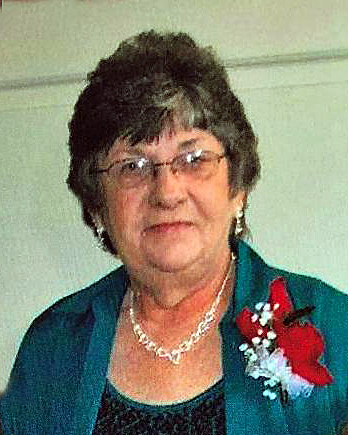| 6 | The Bunker Conceal Carry Class, 8 am, $75 fee |
| 6 | Boiler Room Brewhaus Grand Opening, 11 am, 102 S. National Ave., music, food & craft beer |
| 8 | Informational Breakfast: Stay Strong, Stay Healthy Strength Training Class for Older Adults, Buck Run |
| 9 |
Quarterly Downtown Meet & Greet, Papa Don’s, 10 N. Main St., 8:30 am
|
| 10 | Breakfast Bingo at Buck Run Community Center 9 -10 am |
| 11 | Chamber Coffee, Mercy Health for Life 8 am |
| 11 | Biggest Loser Competition Begins at Buck Run, $15 |
| 11 | Thursdays Card Players at Buck Run Community Center 6-9 pm |
| 12-13 | Livestock Sale, Fort Scott Livestock Market, 2131 Maple Rd., 10 am |
| 12 | Theology on Tap, Papa Don’s Pizza, 10 N. Main St., 7 pm |
| 13-14 | Youth Basketball Tournament- hosted by FSHS Booster Club. Start early Saturday morning through 5-6pm Sunday evening |
Monthly Archives: January 2018
Obituary For Douglas Merril Collins
Obituary for Jimmie Dale Duran
K-State Specialists share tips for managing livestock in winter
Reducing animals’ stress during cold periods is a key goal
Livestock producers are entering a time of year that, because of winter weather, can often be challenging for maintaining the health of their herds, but a host of management steps and best practices can help to get the animals through the tough times.
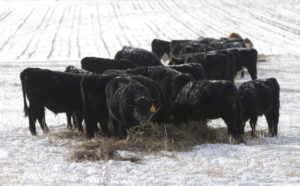
“Talking to a regional climatologist, we foresee a lot of fluctuation in weather,” said A.J. Tarpoff, a beef veterinarian with K-State Research and Extension. “The fluctuations from warm to cold are stressful on any animal, so you have to be ready for that fluctuation.
“If it gets cold and it stays cold, we can manage that very easily. The animals get used to the cold, dry environment. But when we start mixing warm to cold, and a little bit of moisture – in other words, we combine wind, cold and a wet animal — that leads to a little bit of trouble.”
Livestock that can be housed indoors — such as chickens, swine and dairy cattle – may be protected from severe elements, but keeping them properly ventilated can be challenging.
“It’s hard to keep the fans and the ventilation adjusted appropriately because the incoming air is still somewhat warmer during the day, but then it cools off during the night as we get the different weather fronts coming through,” said Joel DeRouchey, a livestock specialist with K-State Research and Extension.
DeRouchey notes that fluctuations in indoor temperatures can cause mortalities in herds because the animals get stressed from the roller-coaster shifts.
“It’s just like humans, from the standpoint if they’re going through any stress, changes in the outside temperature leads to humans developing respiratory challenges,” he said. “It’s the same for livestock, whether they’re inside or outside.
“The most important thing is maintaining a constant temperature. The goal is to bring animals inside to protect them from the elements, so we need to make sure our ventilation systems are managed correctly to provide that ideal environment.”
DeRouchey said that indoor ventilation also is important to keep air moisture, odor and nitrogen levels low. For animals kept outside in feedlots, Tarpoff said one key is to provide dry bedding.
“Cattle have the right winter coat for cold weather, but whenever it starts to get windy, wet and cold, especially on frozen ground, the cattle want to find a nice, dry area to lie down and rest,” he said.
“Bedding those pens, giving them the opportunity to lie down and rest decreases the stress on those cattle and allows them to increase their comfort level so they can perform at a high rate even in stressful conditions.”
Tarpoff added that a box scraper is an important part of the equation in feedlots. Pens should be scraped routinely to level frozen areas, which will help to reduce foot injuries and the reluctance of animals to move to feed and water.
In outdoor pastures, the two K-State specialists suggest portable windbreaks, which provide shelter and can help with basic biosecurity.
“When cattle congregate in one area of the pasture for a long period of time, you build up environmental contaminates from manure,” Tarpoff said. “So move the portable windbreaks to different locations in the pasture so that you decrease the environmental contamination, which is especially important for newborn calves and control of scours.”
DeRouchey notes that portable windbreaks can force cattle to walk out of low areas to water and feed.
“It doesn’t hurt those cows to walk out of those low areas,” he said. “From an environmental standpoint, once we start providing a lot of feed or stationary feeders in those low areas, the manure buildup and the sanitation degrades really fast.”
During severe cold periods, producers need to feed a little more hay or other forage so that the animals’ natural heat source – the rumen – can do its work. Cattle may be fed near windbreaks during times of extreme cold and snow, but DeRouchey notes that shouldn’t happen very often during the season.
Tarpoff added that water is equally important for livestock in the winter months as it is in the summer months.
“They are eating a lot more, so they need to be able to drink a lot more to balance the body’s homeostasis,” he said. “Check waterers regularly that they are not frozen over, there’s plenty of flow, and there’s plenty of volume for animals to drink from. A frozen tank can be detrimental to any livestock operation.”
The two K-State specialists also shared some ideas to help producers get themselves through the colder months. Specific to the upcoming calving season, one tip is to feed cattle in the evenings.
“Changing our feeding strategies to the evening hours, right at dusk, will increase the number of calves born during the daylight hours, which is when the producers are out checking those cattle more regularly,” Tarpoff said.
DeRouchey also reminded producers to make sure flashlights are in working order, and store extra batteries and clothing in case they get stranded or need to be out for extended periods in cold and snowy weather.
Story by:
Pat Melgares
K-State Research and Extension
www.ksre.ksu.edu
For more information:
Joel DeRouchey, [email protected], 785-532- 2280
AJ Tarpoff, [email protected], 785-532- 1255
Spradling Selected As New Bourbon County Attorney
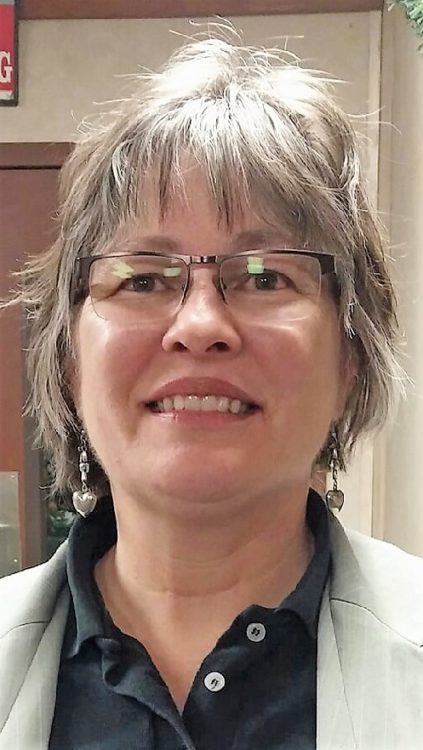
The next county attorney was chosen Thursday evening by the Bourbon County Republican Party at their convention, which was held at the Fort Scott Livestock Market.
Jacqueline Spradling, Spring Hill, was selected to be the next Bourbon County Attorney.
“She threw her hat in the ring at noon today,” Gayle Sackett, Republican Party Chairman, said.
Spradling is replacing Justin Meeks, who remains as Bourbon County Counselor, but served in both capacities prior to January 2.
Spradling graduated in 1991 with a Juris Doctorate from Washburn University; 1998 with a Masters of Criminal Justice from Washburn University; 1989 with a BA degree in Psychology and Political Science from Washburn University; and in 1987 with an AA from Washburn University, according to information provided by Sackett.
Her experience is as follows:
- 2017 to present – ASSISTANT COUNTY ATTORNEY. Allen County Attorney’s Office.
- 2009 to 2017 – CHIEF DEPUTY DISTRICT ATTORNEY. Shawnee County District Attorney’s Office. In charge of all homicide prosecutions, Chief of the Cold Case Homicide Unit.
- 2007 to 2009 – KANSAS ATTORNEY GENERAL’S OFFICE. Assistant Attorney General prosecuting cases of domestic violence. Extensive training was provided to law enforcement and prosecutors on the topic of domestic violence, in addition to carrying a caseload.
- 1991 – 2007 – JOHNSON COUNTY DISTRICT ATTORNEY’S OFFICE. Senior Trial Attorney and Section Chief in charge of the domestic violence unit. Previous responsibilities include Section Chief in charge of the Intern Program, Prosecutor on the Drug and White Collar Units.
Sackett, who was vice-chairman previously, led the convention, stepping up after the sudden death of Republican Party Chairman Randall Readinger in late December.
Because of Readinger’s death, the convention was postponed a few days past Meeks last day of January 2.
Following Spradling’s appointment, she will have to run in the November 2018 election, Sackett said.
A letter to certify the election will be sent tomorrow, then the governor will appoint Spradling.
Photos submitted by Vickie Shead.
Patty LaRoche: The Need to Pray
In 1952, Albert Einstein was delivering a lecture on the campus of Princeton University. A doctoral student asked the famous scientist, “What is there left in the world for original dissertation research?” With considerate thought, Einstein replied, “Find out about prayer. Somebody must find out about prayer.”

F.B. Meyer, author of The Secret of Guidance, might have consoled Einstein with his writing: “Prayer is, for the most part, an untapped resource, an unexplored continent where untold treasure remains to be unearthed. It is talked about more than anything else, and practiced less than anything else. And yet, for the believer it remains one of the greatest gifts our Lord has given us outside of salvation.”
Still, the majority of Christians reject this miraculous resource.
For the past few years I have used a power tooth brush. Built into it is a little timer that shuts itself off after two minutes. Flossing adds another minute. Gargling and rinsing, a few seconds more.
From beginning to end, no more than four minutes is used…the same amount of time most Christians (according to statistics) spend in prayer. If that isn’t tragic enough, most of those five minute prayers are spent asking for something. No wonder our faith remains powerless. We expect the Creator of the universe to stay on call to meet our every desire, ready to jump when we order Him to, yet our teeth get the same attention He does.
What’s wrong with this picture?
I recently read a story of a minister observing a young boy kneeling in church praying fervently, repeating the words “Tokyo, Tokyo, Tokyo.” The preacher approached the boy after he finished his prayer and said, “Son, I was very pleased to see you praying so devoutly, but tell me, why did you keep saying “Tokyo, Tokyo, Tokyo”? The boy answered, Well, you see sir, I just finished taking my geography test in school, and I have been praying for the Lord to make Tokyo the capital of France.”
The story is a perfect illustration of how we use God. “Here’s my list, Lord. Don’t take too long to answer.” Thomas Aquinas once wrote, “It is clear that he does not pray, who, far from uplifting himself to God, requires that God shall lower Himself to him, and who resorts to prayer not to stir the man in us to will what God wills, but only to persuade God to will what the man in us wills.”
Oh my, the cry is desperate! Even Jesus, giving the disciples an example of how to pray, used the phrase “Thy will be done” while speaking to his Father in the Lord’s prayer. It has nothing to do with “my” will. We need to learn to pray to accept what God has for us, good and bad. Does that mean that we don’t petition God to hear our pleas? Absolutely not. It simply changes our focus from “Me” to “Him.”
Mother Teresa’s life-changing message resounds with confidence: “Prayer is not asking. Prayer is putting oneself in the hands of God, at His disposition, and listening to His voice in the depth of our hearts.”
Perhaps Einstein just needed to know whom to ask.
KState Extension: New Year Resolutions for the Farmer
Submitted by: Carla Nemecek, Southwind Extension District, Director & Agent
Polls show that 88 percent of Americans make at least one New Year’s resolution. While resolutions can be as unique as the individual, the most popular resolutions are to eat healthier (55%), exercise more (50%), and lose weight (38%).

Although made with good intentions, most people fail to follow through in keeping their goals for the New Year. But that doesn’t mean our farmers and ranchers can’t be among the 20% of people who do actually achieve success with their resolutions.
Slow down. Farmers are notorious for being in a rush – always too much to do and not enough time to get it done. I realize a farmer’s day doesn’t always go according to schedule, but if you can slow down you may save yourself time in the long run. Remember, slow and steady wins the race.
Get organized. Get a new notepad or calendar to keep track of breeding dates, birthing dates, and dates that vaccinations were given. Personal experience says the intent to just remember that tag number and write it down once in the house is often forgotten. A handy calendar in the pickup or barn will encourage those things to be written down immediately.
Learn from past mistakes. I am guessing that many of us have something we wish we could change from the past year. Whether it be remembering a birthday or communicating to family or employees, try to avoid making the same mistake twice. Think about one decision you would change from the past year and make and create a plan to correct it for 2018.
Create a marketing plan. This could be for either a crops or livestock operation. Will you be ready to price grain when you reach your price objective? Do you have a price objective? Can you market your cattle in a more efficient manner and gain more profits? If you have a plan, you will be more prepared when the markets change.
Eat healthier. I am certainly not a nutritionist, but it doesn’t take one to tell you that a can of soda is not healthy. Look for ways to eat healthier and drink plenty of water. You are a valuable resource to your farming operation and to your family.
Change one thing. Surely there is something on your farm or ranch that you’ve intended to correct or fix. Maybe the fence is in need of drastic repair, or the driveway needs a new load of gravel. Either way, find that one thing that you’ve intended to do and get it done. Commit to having it accomplished by a specific date and stick to it.
Spend time with family. Kids grow fast and whether you are a parent or grandparent you surely realize the most precious gift is time. As the kid of a farmer, I can tell you that spending any time with Dad is valuable. Give them a ride in the pickup on the way to the field or let them ride in the passenger seat of the tractor or combine. While you have some one-on-one time, talk to them and slow down enough to listen. This advice is good for your spouse too!
Learn something new. Living in the technology age, there really isn’t a good excuse for not knowing what is going on in the world around you. If you haven’t figured out how to use the internet, ask someone to show you how. You will be amazed at the information and resources available to you.
Another year has passed, and here we are at the beginning of 2018. This is surely to be a year of many good memories and experiences. For me, I hope it is a year of Patience – my personal resolution to make me a better mom, wife, friend and co-worker. Happy New Year!
Fort Scott NHS Announces Launch of new Mobile App
Submitted by Fort Scott National Historic Site
Visitors to Fort Scott NHS in 2018 will have a new way of discovering the Fort’s resources and stories. The site is pleased to announce the launch of a new smart phone and tablet mobile app. The app features an interactive map, multiple historic and “behind the scenes” photos, interesting details about all of the buildings and furnished rooms, and helpful information on available services. Best of all, the app is free.
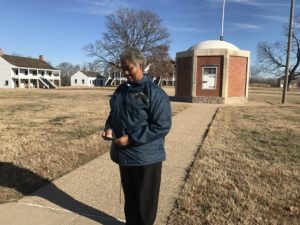
The app allows visitors to engage with the site in new ways and make discoveries right in the palm of their hand. It also increases the accessibility of the site. Individuals with limited mobility can explore photos of the rooms and exhibits that they may not be able to visit.
Audio description of tour stops and site features describe what is in each room for visitors with sight impairment. The interactive map shows where tour stops and features are located. Information about each stop “activates” in the app as a user approaches the locations. The map includes large font sizes, easily distinguishable walkways, and multiple zoom levels.
Other features of the new app include:
A calendar, which allows users to view upcoming special events and programs
A tour function, which assists visitors in taking a self-guided tour
A “Build-an-Itinerary” function, where users can create a personalized plan by saving favorite sites and events; visitors can even get alerts when they are near a saved site
Fort Scott NHS is excited to be adding this 21st Century method of serving visitors. The app will allow the Fort to reach the increasing number of people who use mobile devices when they travel, engage with tech-savvy audiences, and increase the accessibility of the site for more people.
The app is one in a series of official National Park Service apps that includes sites such as Grand Teton National Park, Independence National Historical Park, and Herbert Hoover National Historic Site.
The app is free of charge and at this time is available for iPhones, iPads, and iPod Touches. It requires iOS 9.0 or later and can be found on the Apple App Store. Search “NPS Fort Scott.” Users will need internet access to download the app, but once downloaded it can be used without connectivity.
Meeks Set To Focus On County Counselor Position
Justin Meeks resigned as Bourbon County Attorney on November 22, 2017, with an official last day January 2.
He has been doing both that job and the Bourbon County Counselor position since February 2015.
“Nobody can do both job functions,” Meeks said. “Because of the amount of time needed. I wanted to do an A+ but couldn’t, with the hours involved.”
His focus now is administrative law.
Meeks will be giving the county legal advice about contracts, acquisition, and human resources, he said.
An example is research on issues that come to the commission. “They (the Bourbon County Commission) have had me do a lot of research on fire districts,” he said.
“My goal is not to get the commissioners sued,” Meeks said with a laugh.
Meeks vacated his county attorney office Tuesday. He will be working out of the second floor of the courthouse.
The required hours for the counselor position is 25 per week. But “I’ve always worked more than the expected hours,” he said.
For this position, he will be paid $64,000 a year.
“That works out to be $48 per billable hours,” he said.
Meeks said nearby Allen County has a part-time county attorney that makes $70,000, a part-time assistant county attorney that makes somewhere in the “upper $50,000s.” And also a county counselor that makes $58,000.
The Bourbon County Attorney position is $50,230, he said, with 35 hours required per week.
Meeks said he is “excited” about the counselor position focus.
“There is a lot of good things going on in Bourbon County,” he said. “The airport expansion, (on that project) the city and county will be working together. There are two bridges to replace in the county. There is exciting economic development in the county.”
Additionally, “I hope the county will be a part of reducing the overall tax liability for the county,” he said.
Meeks is a 1992 Fort Scott High School graduate, a 1994 Fort Scott Community College graduate, a 1996 Lindenwood University (St. Charles, MO) graduate with a BA in education. He then earned a Master’s in Business Administration in 1998 and then graduated from Washburn University in 2001 with a law degree. He was in private practice from 2003 to 2014.
“I’ve been back to Fort Scott since November 2005,” Meeks said. “I have a three-year-old son. He is the joy of my life. I plan on living in Fort Scott the rest of my life and raising my son with whom I share joint custody.”
“I hope the next county attorney takes the job as serious as I have the last three years,” he said. “I am looking forward to being able to serve in one job function.”
New County Attorney Chosen Tonight
The next county attorney will be chosen tonight by the Bourbon County Republican Party at their convention at the Fort Scott Livestock Market.
The Republican Party Chairman Randall Readinger passed away suddenly and unexpectedly in late December.
Gayle Sackett, who was vice-chairman, will lead the convention.
Because of Readinger’s death, the convention was postponed a few days past Meeks last day of January 2.
Following the appointment of a new county attorney, that person will “have to run in the next election,” in November, Meeks said.
Obituary For Emil Charles Mashek
Emil Charles Mashek, age 85, a resident of rural Richards, Missouri, passed away Tuesday, January 2, 2018, at the Mercy Hospital in Joplin, Missouri. He was born December 24, 1932, in Seward, Nebraska, the son of James Lewis Mashek and Mary Hromas Mashek. He served in the United States Army during the Korean Conflict. Following his military service, he relocated to the Mashek family farm near Richards, where he farmed and raised cattle for the remainder of his life. He married Carmen Dobry on December 11, 1959, at Girard, Kansas. Emil was a member of the Olson Frary Burkhart Post #1165 Veterans of
Foreign Wars of Ft. Scott, the Ft. Scott Elks Lodge and the American Legion Post of Dwight, Nebraska. In addition to his life on the farm, he enjoyed going to casinos and playing cards.
Survivors include his wife, Carmen, of the home; two sons, Steven Mashek, and wife, Jodee, and David Mashek, all of Richards; a grandson, Skylur Emil Mashek also of Richards and two step-grandchildren, Victoria Krohn and husband, Stephon and Jonathon Ireland, all of Moore, Oklahoma. He was preceded in death by his parents, a brother, James Mashek and a sister, Mary Ann Shane Jauernig.
Rev. Kevin Moyers will conduct funeral services at 1:30 P.M. Saturday, January 6 at the Cheney Witt Chapel. Burial with military honors will follow in the Evergreen Cemetery in Ft. Scott. The family will receive friends from 5 to 7 P.M. Friday at the Cheney Witt Chapel. Memorials are suggested to the Vernon County Youth Fair and may be left in the care of the Cheney Witt Chapel, 201 S. Main, P.O. Box 347, Ft. Scott, KS 66701. Words of remembrance may be submitted to the online guestbook at cheneywitt.com.
Opportunity To Choose For Mercy Patients With Blue Cross
“In the past, Mercy Hospital Fort Scott has been able to accept Blue Cross/Blue Shield, but Mercy Hospital Joplin and Springfield were excluded,” said Tina Rockhold media spokesperson for Mercy Hospital said.
Kansas residents with Blue Cross and Blue Shield’s plan which are part of the Blue Card network now have access to Mercy Joplin doctors, hospitals, labs, imaging facilities and other health care services, effective January 1, 2018.
Mercy Joplin and Springfield are now in-network with a number of Blue Cross and Blue Shield of Kansas health insurance plans.
“This is a tremendous benefit to our patients,” Rockhold said. “Because if they are transferred or need specialty care not offered here, they can now receive care in Joplin or if need be in Springfield.”
“In Springfield, for example, there is a highly specialized pediatric service,” she said. “If needed patients could be treated there.”
Click here for a list of Blue Cross Blue Shield plans accepting Mercy providers.
Patients with the following plans will receive in-network privileges at Mercy Joplin: Blue Choice, Preferred Care, Preferred Care Blue, Pathway/Pathway X and Medicare Advantage.
Because of its efficient, quality care, Mercy recently was named one of the top five large health systems for the second year in a row by IBM Watson Health’s Truven Health Analytics.
In addition to quality care across the board, patients in these Blue Cross Blue Shield plans will have access to a variety of Mercy health care specialties in Joplin that include:
- Mercy hospitals located in Joplin, Carthage, and Springfield
- Mercy Kids Pediatric Specialist Outreach Clinics in Joplin, and a Mercy Children’s Hospital in Springfield with dozens of physician subspecialists including pediatric critical care, orthopedic, endocrinology and neurosurgery
- A neonatal intensive unit with private rooms that give families the space to participate in their child’s care
- First Hybrid Operating Room in Joplin for open heart and brain surgeries
- Advanced specialty services for cardiovascular, spine, bariatrics, neurology and many more
The full list of Blue Cross Blue Shield plans accepting Mercy providers follows:
Medical Networks
-
Blue Access – PPO
-
Blue Access Choice – PPO
-
Blue Traditional
-
Medicare Advantage HMO
-
Medicare Advantage PPO
-
Pathway
-
Pathway X
Medical (Individual & Families)
- Anthem Blue Cross Blue Shield Gold Direct Access, a Multi-state Plan
- Anthem Blue Cross Blue Shield Silver Direct Access, a Multi-state Plan
-
Blue Access Choice – S
-
Bronze Pathway
-
Bronze Pathway X
-
Catastrophic Pathway
-
Catastrophic Pathway X
-
Gold Pathway
-
Gold Pathway X
-
Lumenos Plans (Blue Access Choice)
-
Lumenos Plans (Blue Access)
-
National PPO (Blue Card Basic)
-
National PPO (Blue Card PPO)
-
Silver Pathway
-
Silver Pathway X
Medicare
-
Anthem MediBlue (HMO)
-
Anthem MediBlue (PPO)
-
Anthem MediBlue Dual Advantage (HMO SNP)
-
Anthem MediBlue Plus (HMO)
-
Anthem MediBlue Preferred (PPO)
-
Blue Medicare Advantage (PPO)
-
Blue Medicare Rx (PDP) with Senior Rx Plus
-
Blue Medicare Rx Plus (PDP)
-
Blue Medicare Rx Premier (PDP)
-
Blue Medicare Rx Value (PDP)
Federal Employee Program
-
Federal Employee Program
International
-
Blue Card Worldwide
Mercy, named one of the top five large U.S. health systems in 2017 by Truven, an IBM Watson Health company, serves millions annually. Mercy includes 44 acute care and specialty (heart, children’s, orthopedic and rehab) hospitals, more than 700 physician practices and outpatient facilities, 40,000 co-workers and more than 2,000 Mercy Clinic physicians in Arkansas, Kansas, Missouri and Oklahoma. Mercy also has outreach ministries in Arkansas, Louisiana, Mississippi and Texas.



